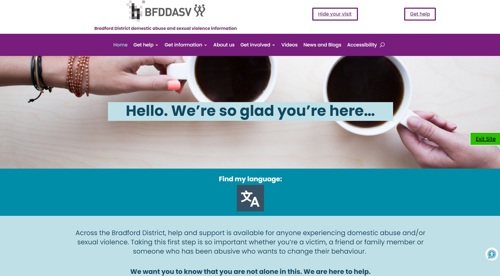What is domestic abuse?
Domestic abuse is an incident or pattern of incidents of controlling, bullying, threatening, or violent behaviour, by a partner, ex-partner, or any family member.
Domestic abuse isn’t just physical violence –it can be emotional, physical, sexual, economic, and psychological abuse.
